The first integral translation into English Saint Anthony's Opus evangelium, published in 1979 by the Centro Studi Antoniani of Padua. This is the forth of 4 volumes.
PREFACE
We know just how the Work for Festivals carne to be composed by Anthony. According to the earliest "Life" of the Saint, known from its opening word as the "Assidua"
"At the time of the General Chapter, when the most holy relics of the blessed father Francis were translated to the piace where they now rest with due veneration, the servant of God Anthony was released from the office of minister to the brethren, and received a generai license to preach from the Minister General. But because on another occasion (namely when he was compiling his sermons for Sundays throughout the year) he had made his residence in the city of Padua, and experienced the sincere faith of the people, he felt a certain bond of charity towards. So, drawn by their wonderful devotion, he decided to visit them in the first period of his freedom.
When he had arrived, by divine impulse, in the city of Padua, he applied his mind throughout the whole winter (with intervals for preaching) to fitting studies. He also, at the request of the Bishop of Ostia, devoted himselfto compiling sermons for the festivals of the saints throughout the year. While the servant of God Anthony was employed in such useful works for his neighbour, the season of Lent approached. Seeing, then, that the acceptable time was at hand, and the day of salvation, he left off from what he had begun, and applied his whole attention to preaching to the thirsty people." (Assidua, chapter 11)
The General Chapter at which the reburial of St Francis Look piace was held at Pentecost, 1230. The winter during which he devoted himself to the composition of this work must therfore have been that of 1230-1231, and he was interrupted al the beginning or Lent, 1231.
The series of Festival Sermons is incomplete (in the sense of not containing the later festivals of the year) and it may he that even the sermons we have are not altogether in the form Anthony would have given thein if he had Iived longer. For each festival there is an exposition of the Gospel of the day, though less elaborate than those for the Sunday Gospels, followed by several sections based un an Old Testamen text- treated "allegorically", "morally", or occasionally "anagogically". The term "festival" is used broadly: it includes, for instance, Ash Wednesday and Rogation-tide. The final commentary, for the Apostles Peter and Paul (June 29th) seems lo break off without the customary prayer, and if Anthony was work ing un the Festival Sermons again after his Lente!" Mission, this may be the point at which his final illness struck him.
When he cites Scripture in the Opus Dominicale, Anthony gives only the Book; in the Festival Sermons he gives both Book and chapter, indicating that between the composition of the two sets he became acquainted with the recent developments in the division and referencing or Scripture. I had completed his project, we would expect il to have contained at least the Festivals of the remaining Apostles (James, Bartholomew, Matthew, Simon and Jude, Andrew and Thomas); AlI Saints and II Souls; and the Assumption and the Nativity of the !flesseci Virgin Mary. It might also have included St Martin- a very popolar festival- and even st Francis. Since Anthony has no explicit references to Francis in his extant work, we can unly regret the loss of such a sermon.
EXTRACT FROM CHAPTER ONE
THE NATIVITY OF THE LORD
1. At that time: There went out a decree from Caesar Augustus that the whole world should be enrolled. [Lk 2.1] In this Gospel three things are noted: the enrolment of the world, the birth of the Saviour, and the announcement to the shepherds. With God's help, we shall say something about each of these, briefly and clearly.
THE ENROLMENT OF THE WORLD
2. The enrolment of the world, as it says: There went out a decree. Note that in this first clause there is moral teaching, about how anyone who wants to repent of the sins he has committed should first take a census of his life in contrition, and afterwards hasten to confession.
So it says: There went out a decree from Caesar Augustus. Caesar means `possessor of the chief piace', and Augustus is 'standing with dignity'. He represents Almighty God, the owner of the whole of creation, as in Isaiah 66.


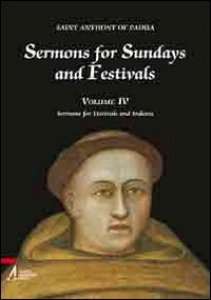
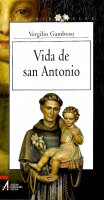
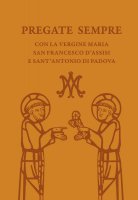

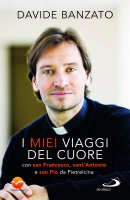
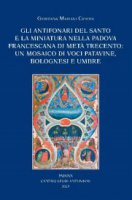


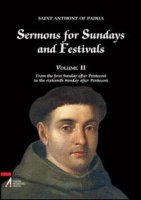
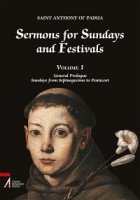
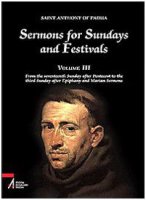
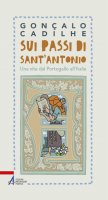

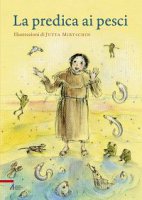
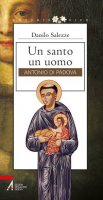
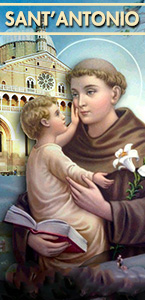



























Qui trovi riportati i commenti degli utenti di LibreriadelSanto.it, con il nome dell'utente e il voto (espresso da 1 a 5 stelline) che ha dato al prodotto.
I commenti compaiono ordinati per data di inserimento dal meno recente (in alto) al più recente (in basso).
Paskalia Mariana il 4 giugno 2016 alle 06:24 ha scritto:
Great insight from St. Anthony about how to read the Bible as the Church reads it through the light of the Holy Spirit. A real great treasure!